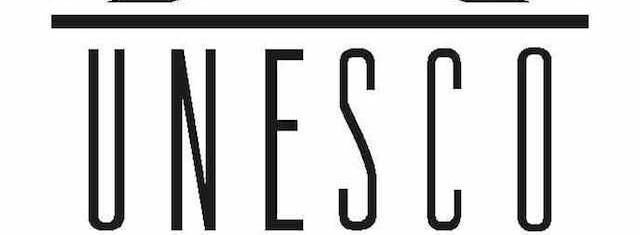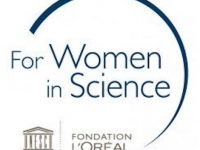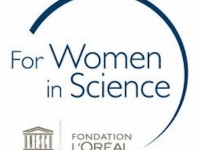Miscellaneous
FIVE LAUREATES NAMED FOR 2018 LOREAL UNESCO FOR WOMEN
IN SCIENCES AWARDS

UNESCO logo (Source: UNESCO)
USPA NEWS -
The L'Oréal Foundation and UNESCO have selected five outstanding women scientists from Argentina, Canada, China, South Africa, and the United Kingdom who will receive the 2018 L'Oréal-UNESCO For Women in Science Awards in life sciences on 22 March 2018 in Paris. The L´Oréal-UNESCO for Women in Science Awards recognizes women who are still under-represented in various fields, including science, where the glass ceiling remains a reality. Nowadays, barely 28% of researchers are women. All of this year´s nine scientific Nobel Prizes were awarded to men and, since the creation of the Nobel Prizes in science, fewer than 3% have been awarded to women.
The L´Oréal-UNESCO for Women in Science Awards recognizes women who are still under-represented in various fields, including science, where the glass ceiling remains a reality. Nowadays, barely 28% of researchers are women. All of this year´s nine scientific Nobel Prizes were awarded to men and, since the creation of the Nobel Prizes in science, fewer than 3% have been awarded to women.
Yet, numerous women are making major contributions to science. For almost 20 years, the L´Oréal Foundation, in partnership with UNESCO, has celebrated five exceptional female researchers every year and has been committed to promoting equality between women and men in science.
The five women scientists celebrated by the 2018 L'Oréal-UNESCO For Women in Science awards were selected by an independent jury of ten high-profile members of the international science community, chaired this year by Professor Elizabeth H. Blackburn, laureate of the 2008 L'Oréal-UNESCO For Women in Science Award and of the Nobel Prize in Physiology or Medicine in 2009.
Each Laureate will receive €100,000 in prize money for her outstanding contribution to advances in science. They will be celebrated in a ceremony to be held on 22 March 2018 in Paris, on the occasion of the 20th anniversary of the L´Oréal-UNESCO For Women in Science programme.-----------------------------------------------------------------------------------------------
AFRICA AND ARAB STATES
Professor Heather ZAR , South Africa, Professor, Red Cross War Memorial Children´s Hospital and Director Medical Research Council Unit (MRC), University of Cape Town, SOUTH AFRICA.
Medicine and Health Sciences/Pediatrics
“For establishing a cutting-edge research program in pneumonia, tuberculosis and asthma, saving the lives of many children worldwide.“
ASIA/PACIFIC
Professor Meemann CHANG, China, Professor, Institute of Vertebrate Paleontology and Paleoanthropology
Member of Chinese Academy of Sciences, Beijing, CHINA
Biological Sciences/Paleontology
“For her pioneering work on fossil records leading to insights on how aquatic vertebrates adapted to life on land.“
EUROPE
Professor Caroline DEAN, United Kingdom, Professor, John Innes Centre, Norwich Research Park
Biological Sciences/Molecular biology
“For her groundbreaking research on how plants adapt to their surroundings and climate change, leading to new ways for crop improvement.“
LATIN AMERICA
Professor Amy T. AUSTIN, Argentina, Professor, Agricultural Plant Physiology and Ecology Research Institute (IFEVA) - CONICET, School of Agriculture, University of Buenos Aires
Ecology and Environmental sciences
“For her remarkable contributions to understanding terrestrial ecosystem ecology in natural and human-modified landscapes.“
NORTH AMERICA
Professor Janet ROSSANT, Canada, Senior Scientist, The Hospital for Sick Children, Toronto, University Professor, University of Toronto, President, Gairdner Foundation (CANADA), Biological Sciences/Developmental biology
“For her outstanding research that helped us to better understand how tissues and organs are formed in the developing embryo.“ Source UNESCO
Unesco Loreal Awards Women Sciences Irina Bokova Audrey Azoulay Genera Director Former Culture Minister Jedi Foster Rahma Sophia Rachdi
Liability for this article lies with the author, who also holds the copyright. Editorial content from USPA may be quoted on other websites as long as the quote comprises no more than 5% of the entire text, is marked as such and the source is named (via hyperlink).







